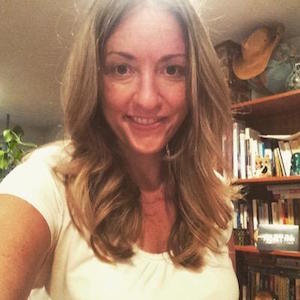Yes, as we all know, technology makes the work of reporting and distributing news easier than ever before. Hey, I worked in a newsroom without The Internets back in the day myself, pouring over a paper map to see where the hell that zoning board meeting was being held, busting out the phone book to find a source’s number, and hoo boy I’m glad we aren’t there anymore. (Okay, there was one really slow computer in the corner that could crank up AltaVista after a while.)
 But I think one thing remains true but is not well acknowledged: Journalism in 2016, done right, will not be a job for the weak. Only the passionate and determined will succeed. The tech tools that we rely on to engage and grow our audiences are powered by people, and dedicated, hard-working staff are our most important asset. And what we need to do — what I hope we will do — going forward is to begin to better value and grow that human talent, not take it for granted.
But I think one thing remains true but is not well acknowledged: Journalism in 2016, done right, will not be a job for the weak. Only the passionate and determined will succeed. The tech tools that we rely on to engage and grow our audiences are powered by people, and dedicated, hard-working staff are our most important asset. And what we need to do — what I hope we will do — going forward is to begin to better value and grow that human talent, not take it for granted.
I know, I know. The New Yorker has us all thinking about artificial intelligence and the singularity; pretty soon our refrigerator will remind us to buy more beer; the AP, among others, is using robots to write routine news. We live in wild times.
But as the social journalism program I run at the CUNY Graduate School of Journalism teaches, today’s journalists have to listen to communities and meaningfully engage people around the issues they care about if they hope to retain loyal readers and find ways to build revenue. This is the core of our philosophy, as espoused by my colleague Jeff Jarvis, that sees journalism as a service, not as a product.
But there aren’t any shortcuts to making this work. Ask my students! Yes, there is an endless parade of tools like Slack that make our daily routines easier in various ways, but I can’t find any substitute for dogged consistency when it comes to getting readers to trust you. Crowdsourcing, understanding the best ways to get people to participate in some way in your news process or even to know your product exists at all takes big-time effort. Check out some of my student Julia Haslanger’s excellent work documenting what social media editors or community engagement specialists (there are many titles) do in newsrooms. One really good staff member who cares deeply about the purpose of your organization and the community it serves is even better than a great CMS (although that would be nice too).
I know most news organizations don’t have the budgets to hire more people or give people a huge raise. But how can we better honor and develop people who do this work in the coming year? It doesn’t take Google-like office perks to do this — studies of organizational culture show that simple ways of recognizing and empowering people go a long way. And as my student Pedro Burgos puts it, if we stop chasing just clicks and likes and pursue ways to produce and quantify impact, perhaps the issue of scale will become less important.
I would also like to see the foundations that today play such an important role in funding innovation in journalism recognize that investing in people is just as sexy as investing in new tech and big data. All the cool new apps and widgets in the world don’t get adopted by time- and cash-strapped newsrooms, while one eager and engaged staffer can finagle ways to make great things happen, even with few resources.
We’re lucky at CUNY that we have generous support from the Tow and Knight foundations, which do understand the value of nurturing talent and allow us to offer many of our students scholarships. I wish I could give out even more funding to help cover living expenses, and that other donors would follow their lead; it’s much easier to turn out skilled students when they don’t have to worry about how they’re going to eat and pay the rent every month. (Especially living here in New York, even though we are a public school with reasonable tuition.) These are exactly the kind of people we should be investing in. And it’s not just us — there are plenty of other programs out there that have students that need more support to be able to fully take advantage of all of the opportunities we can offer them at journalism school.
Let’s do it, 2016!
Carrie Brown-Smith is director of the M.A. in Social Journalism program at City University of New York.